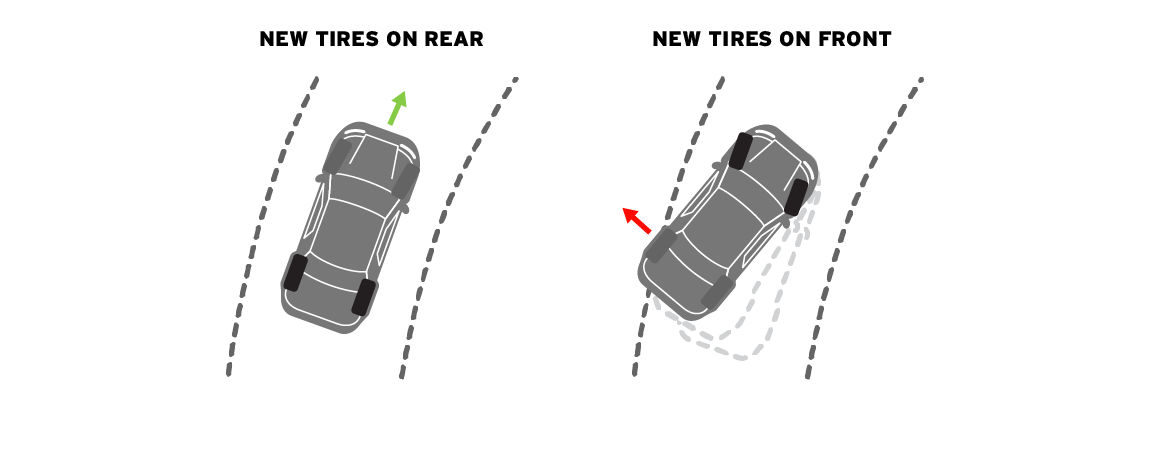Replacing Less Than 4 Tires
When time comes to replace the tires on a vehicle, it is recommended to replace all four tires at the same time. Replacing all four tires at the same time will ensure optimal vehicle performance. It is also recommended that you refer to your owner’s manual before taking any action. Note that in some 4X4 and AWD vehicles, a small change in the diameter of the tires can cause damage to the drive train or other mechanical malfunctions. Although changing all four tires is the preferred method of replacing tires, sometimes it is not possible. For those cases where tire replacement of all four tires is not possible, you should follow these general guidelines below.

Replace two (2) tires. If replacing four tires is not an option then a pair of tires should be replaced. Make sure the new tires are the same size and construction as the tires already mounted on the vehicle. The two new tires should be installed on the rear axle of the vehicle. New tires generally provide better traction and water evacuation as the tread grooves are deeper. Higher traction over the rear axle of a vehicles is essential to prevent possible oversteer situation and poor vehicle stability.
Replacing one (1) tire. If replacing four or two tires is not an option and only one tire can be replaced, make sure the tire is of the same size and construction as the tires already mounted on the vehicle. Make sure to match the single new tire to the tire with the most tread depth, and place both tires on the rear axle. Higher traction over the rear axle of a vehicles essential to preventing possible oversteer situations and poor vehicle stability.


